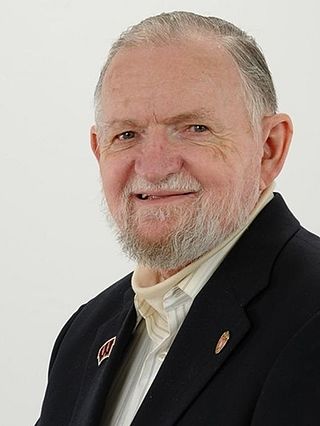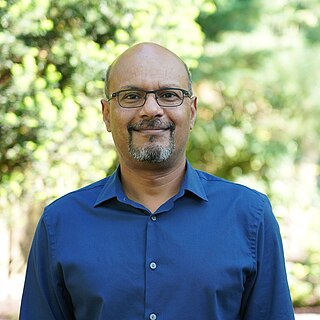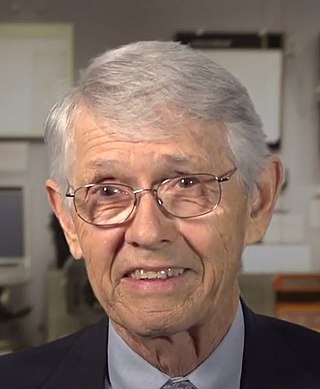
Subra Suresh is an Indian-born American engineer, materials scientist, and academic leader. He is currently Professor at Large at Brown University and Vannevar Bush Professor of Engineering Emeritus at the Massachusetts Institute of Technology (MIT). He was Dean of the School of Engineering at MIT from 2007 to 2010 before being appointed as Director of the National Science Foundation (NSF) by Barack Obama, where he served from 2010 to 2013. He was the president of Carnegie Mellon University (CMU) from 2013 to 2017. Between 2018 and 2022, he was the fourth President of Singapore's Nanyang Technological University (NTU), where he was also the inaugural Distinguished University Professor.
Masayoshi Tomizuka is a professor in Control Theory in Department of Mechanical Engineering, University of California, Berkeley. He holds the Cheryl and John Neerhout, Jr., Distinguished Professorship Chair. Tomizuka received his B.S. and M.S. degrees in mechanical engineering from Keio University, Tokyo, Japan in 1968 and 1970, and his Ph.D. in mechanical engineering from the Massachusetts Institute of Technology in February 1974. He was elected to the National Academy of Engineering in 2022.

Cristina H. Amon is a mechanical engineer, academic administrator and was the 13th dean of the University of Toronto Faculty of Applied Science and Engineering. She was the Faculty's first female dean. Prior to her appointment at the University of Toronto in 2006, she was the Raymond J. Lane Distinguished Professor and director of the Institute for Complex Engineered Systems at Carnegie Mellon University.
Maurizio Porfiri is an engineering professor, mostly noted for his work with robotic fish and aquatic research. His research revolves around modeling and control of complex systems, with applications from mechanics to behavior, public health, and robotics. He is an Institute Professor of Mechanical and Aerospace Engineering and Biomedical Engineering at the New York University Tandon School of Engineering. He is also part of the core faculty of New York University's Center for Urban Science and Progress. In 2022, he was appointed the director of the Center for Urban Science and Progress.

John J. Uicker, Jr was a professor of mechanical engineering at the University of Wisconsin-Madison, Wisconsin from 1967 to 2007 and professor emeritus from 2007 until his death in 2023.
Raymond Morris Bowen is an American academic. He served as the 21st president of Texas A&M University from 1994 until 2002. He served as Interim President of Oklahoma State University (OSU) from 1993 until 1994, and Provost and VP for Academic Affairs at OSU from 1991 until 1993. He was Dean of Engineering at the University of Kentucky from 1983 until 1989. At The University of Kentucky, he also served as Director of the Center for Robotics and Manufacturing Systems and Director of the Center for Applied Energy Research. Bowen was Chair of Mechanical Engineering at Rice University from 1972 until 1977.
Sunil K. Agrawal is an Indian roboticist and professor of Fu Foundation School of Engineering and Applied Science with secondary appointment in Rehabilitation and Regenerative Medicine at Columbia University. Agrawal is the author of more than 500 journals, three books, and has 15 U.S. patents.

Reza Ghodssi is a Professor in the Department of Electrical and Computer Engineering and the Institute for Systems Research (ISR) at the University of Maryland, College Park, where he directs the MEMS Sensors and Actuators Lab and holds the Herbert Rabin Distinguished Chair in Engineering. Ghodssi is also the Inaugural Executive Director of Research and Innovation for the A. James Clark School of Engineering at the University System of Maryland at Southern Maryland (USMSM). He is best known for his work designing micro- and nano-devices for healthcare applications, particularly for systems requiring small-scale energy conversion and biological and chemical sensing.

René Vidal is a Chilean electrical engineer and computer scientist who is known for his research in machine learning, computer vision, medical image computing, robotics, and control theory. He is the Herschel L. Seder Professor of the Johns Hopkins Department of Biomedical Engineering, and the founding director of the Mathematical Institute for Data Science (MINDS).

Yoram Koren is an Israeli-American academic. He is the James J. Duderstadt Distinguished University Professor Emeritus of Manufacturing and the Paul G. Goebel Professor Emeritus of Engineering at the University of Michigan, Ann Arbor. Since 2014 he is a distinguished visiting professor at the Technion – Israel Institute of Technology.

Muyinatu "Bisi" A. Lediju Bell is a researcher and faculty member. She is the John C. Malone Associate Professor of Biomedical Engineering, Electrical and Computer Engineering, and Computer Science at Johns Hopkins University. She is also the director of the Photoacoustic and Ultrasonic Systems Engineering Laboratory.

Gregory D. Hager is the Mandell Bellmore Professor of Computer Science and founding director of the Johns Hopkins Malone Center for Engineering in Healthcare at Johns Hopkins University.

Rajat Mittal is a computational fluid dynamicist and a professor of mechanical engineering in the Whiting School of Engineering at Johns Hopkins University. He holds a secondary appointment in the Johns Hopkins University School of Medicine. He is known for his work on immersed boundary methods (IBMs) and applications of these methods to the study of fluid flow problems.

Somnath Ghosh is the Michael G. Callas Chair Professor in the Department of Civil & Systems Engineering and a Professor of Mechanical Engineering and Materials Science & Engineering at Johns Hopkins University (JHU). He is the founding director of the JHU Center for Integrated Structure-Materials Modeling and Simulation (CISMMS) and was the director of an Air Force Center of Excellence in Integrated Materials Modeling (CEIMM). Prior to his appointment at JHU, Ghosh was the John B. Nordholt Professor of Mechanical Engineering and Materials Science & Engineering at Ohio State University. He is a fellow of several professional societies, including the American Association for the Advancement of Science (AAAS).
Kon-Well Wang is an American academic and engineer, best known for his research work in structural dynamics, especially in the emerging field of adaptive structures & material systems, with applications in vibration & noise controls. acoustic & elastic wave tailoring, shape morphing & deployment, energy harvesting, structural health monitoring, and vehicle and robotic system dynamics. He is the A. Galip Ulsoy Distinguished University Professor of Engineering and the Stephen P. Timoshenko Professor of Mechanical Engineering (ME) at the University of Michigan (U-M).

Ali Galip Ulsoy is an academic at the University of Michigan (UM), Ann Arbor, where he is the C.D. Mote Jr. Distinguished University Professor Emeritus of Mechanical Engineering and the William Clay Ford Professor Emeritus of Manufacturing.
Katherine Julianne Kuchenbecker is the Director of the Haptic Intelligence department at the Max Planck Institute for Intelligent Systems in Germany and an Honorary Professor at the University of Stuttgart. She is an American researcher focussing on haptic technology and robot-assisted surgery, and a former high school and college volleyball player.

Moshe Shoham is a professor emeritus in the faculty of mechanical engineering at the Technion - Israel Institute of Technology.

David Beauregard Bogy is the William S. Floyd, Jr. Distinguished Professor of the Graduate School at the University of California, Berkeley (UCB). He is also the founder and head of the Computer Mechanics Laboratory (CML) at UCB.. He has made particular contributions in air-bearing analysis and design for the sliders that support the read/write heads in hard disk drives (HDD).

Donald Lad DeVoe is an engineer recognized for his contributions to the fields of microelectromechanical systems (MEMS) and microfluidics. He is a Professor of Mechanical Engineering at the University of Maryland, College Park, where he serves as Associate Chair of Research and Administration in the Department of Mechanical Engineering. He is a Fischell Institute Fellow within the Robert E. Fischell Institute for Biomedical Devices, and holds affiliate faculty appointments in the Fischell Department of Bioengineering and Department of Chemical and Biomolecular Engineering at the University of Maryland.














